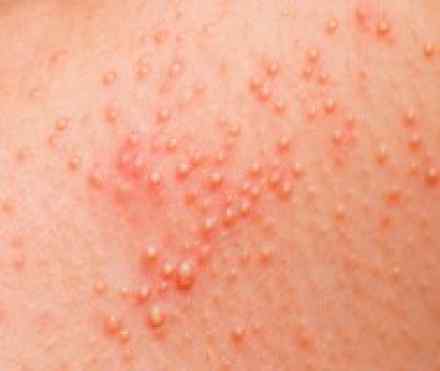
What is it?
Rosacea is a chronic, inflammatory skin condition that affects adults. It causes redness in your face and produces small, red, pus-filled bumps or pustules.
Left untreated, rosacea tends to be progressive, which means it gets worse over time. However, in most people rosacea is cyclic. This means your rosacea signs and symptoms may flare up for a period of weeks to months and then lessen for a while before flaring up again. Besides acne, rosacea can be mistaken for other skin problems, such as skin allergy or eczema.
Though rosacea doesn't have a cure, treatments can control and reduce the signs and symptoms. If you experience persistent redness of your face, see your doctor for a diagnosis and proper treatment.
Symptoms
Signs and symptoms of rosacea include:
- Red areas on your face
- Small, red bumps or pustules on your nose, cheeks, forehead and chin (but not the same as whiteheads or blackheads)
- Red, bulbous nose (rhinophyma)
- Visible small blood vessels on your nose and cheeks (telangiectasia)
- Burning or gritty sensation in your eyes (ocular rosacea)
- Tendency to flush or blush easily
Rosacea usually appears in phases:
- Pre-rosacea. Rosacea may begin as a simple tendency to flush or blush easily, then progress to a persistent redness in the central portion of your face, particularly your nose. This redness results from the dilation of blood vessels close to your skin's surface. This phase may sometimes be referred to as pre-rosacea.
- Vascular rosacea. As signs and symptoms worsen, vascular rosacea may develop — small blood vessels on your nose and cheeks swell and become visible (telangiectasia). Your skin may become overly sensitive. Vascular rosacea may also be accompanied by oily skin and dandruff.
- Inflammatory rosacea. Small, red bumps or pustules may appear and persist, spreading across your nose, cheeks, forehead and chin. This is sometimes known as inflammatory rosacea.
In addition, about one in two people with rosacea experience ocular rosacea — a burning and gritty sensation in the eyes. Rosacea may cause the inner skin of the eyelids to become inflamed or appear scaly, a condition known as conjunctivitis.
Causes
The cause of rosacea is unknown, but researchers believe it's likely due to some combination of hereditary and environmental factors.
Though the exact causes of rosacea remain a mystery, a number of factors can aggravate rosacea or make it worse by increasing blood flow to the surface of your skin. Some of these factors include:
- Hot foods or beverages
- Spicy foods
- Alcohol
- Temperature extremes
- Sunlight
- Stress, anger or embarrassment
- Strenuous exercise
- Hot baths, saunas
- Corticosteroids
- Drugs that dilate blood vessels, including some blood pressure medications
One thing is certain — alcohol doesn't cause rosacea. While the consumption of alcohol can lead to flushing of the skin and may worsen rosacea, people who don't consume alcohol at all still can get rosacea.
Risk factors
Although anyone can develop rosacea, you may be more likely to develop rosacea if you:
- Have fair or light skin
- Are between the ages of 30 and 60, especially if you're going through menopause
- Experience frequent flushing or blushing
- Have a family history of rosacea
Complications
In severe and rare cases, the oil glands (sebaceous glands) in your nose and sometimes your cheeks become enlarged, resulting in a buildup of tissue on and around your nose — a condition called rhinophyma (ri-no-FI-muh). This complication is much more common in men and develops very slowly over a period of years.
Diagnosis
There's no specific test that can diagnose rosacea. Instead, doctors rely on the history of the person's symptoms and a physical examination of the skin to diagnose the disorder.
References
http://www.medicinenet.com/rosacea/article.htm
https://www.hse.ie/eng/health/az/R/Rosacea/
https://www.rosacea.org
http://www.nhs.uk/conditions/rosacea/pages/treatmentoptions.aspx

